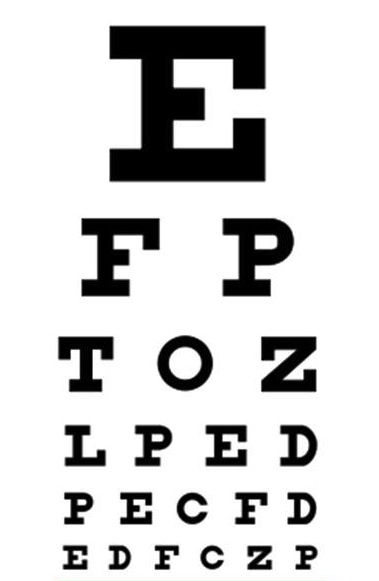 Today, blessed students, let us consider Pronouns for God. I capitalized “pronouns” because we’re talking about Divinity-related pronouns, not run-of-the-mill pronouns. Some people think that’s what you should do. So let’s talk about it.
Today, blessed students, let us consider Pronouns for God. I capitalized “pronouns” because we’re talking about Divinity-related pronouns, not run-of-the-mill pronouns. Some people think that’s what you should do. So let’s talk about it.
When you refer to God or Jesus, should you capitalize He, Him, and His? You, Your, and You’re? Who, Whose, and Whom? Me, my, and Mine when Jesus refers to himself? (“Yet, not My will but Yours be done.”)
Many of you were taught in Sunday school that, should you not pay proper respect by capitalizing God-pronouns, you cannot go to Heaven. I, regrettably, have no objective proof one way or the other, so don’t hold me responsible for what happens in your after-life.
However, as an editor I had to make a decision. Over 30 years ago, soon after I became my denomination’s editor, I changed our practice by opting against capitalizing. (I sort of phased it in, with a period of inconsistency, trepidation, and constant second-guessing.) During the past 30 years, I have removed thousands of capitalizations from copy submitted to me, and have thereby placed unnumbered souls in jeopardy.
I take comfort in being aligned with most popular stylebooks, and with most Bibles. Not that popular practice determines righteousness.
Capitalizing isn’t right or wrong. It’s a matter of personal preference. Decide, and be consistent. A few Bible translations capitalize, most don’t. Editors with very conservative audiences capitalize more often. My audience is conservative, but I have not yet been burned at the stake (I leave room for the possibility), so apparently room exists for tolerance.
Some people, wanting to earn even grander crowns in heaven, capitalize everything pertaining to God. Like attributes when they refer to God or Jesus–Almighty, Just, Loving, etc. “Our God is an Awesome God.” You have the Babe lying in a Manger–not just any manger, but Christ’s Manger. You have Angels and demons, Heaven and hell. But where do you draw the line? Extend it to the Bread He broke, the Water He walked on, the Donkey He rode, the Place He is going to prepare? It can get nuts.
Much easier to just lower-case everything. It has removed much stress from my life, at least until I must give an accounting in Heaven.
In Hebrew, one of the Bible’s original languages, capitalizing wasn’t an issue, because Hebrew doesn’t have upper-case and lower-case letters–just an alphabet. So Moses and David didn’t capitalize pronouns for God, yet seemed to remain in God’s good graces. The early English Bibles (Wycliffe, Tyndale, Geneva, King James) didn’t capitalize pronouns for God. The NASB and the New King James capitalize pronouns for God, but nearly every other contemporary version doesn’t (look up John 3:16 on BibleGateway.com and compare).
Capitalizing isn’t meant to show respect. It’s to differentiate something specific from something generic. We’ve got the church on the corner, and the universal Church. There are gods, and there is God. There are college presidents, and the President. Capital letters are a communication tool. Don’t sanctify them.
I do capitalize titles given to God or Jesus–Son of God, the Lord of Hosts, the King of Kings, the Good Shepherd, etc. But pronouns are different.
In some contexts, like a letter going out from a specific person, I will leave the capitalizations in because they are a reflection of that person. But in any official publications, either in print or on the web, lower-case rules my day.
Capitalizing deity pronouns presents problems. In Luke 22, the guards are beating and mocking Christ, and say these words, “Prophesy! Who hit you?” Should “you” be capitalized, since it refers to Jesus? But then, that would imply that the guard recognized Jesus as divine: “Who hit You?” See the conflict?
A similar situation occurs a few verses later, when Pilate asks, “Are You the king of the Jews?” Pilate wouldn’t have viewed Jesus as divine, so why add divinity to his use of the word “you” (as the NASB and NKJV do). There are numerous other examples.
Using lower-case prevents much hand-wringing.
However, don’t feel like you need to change your practice. I don’t want to cause you to stumble. Just because I eat meat offered to idols doesn’t mean you should violate your conscience by doing so.
That’s more than enough on that. Class dismissed.


 Today, blessed students, let us consider Pronouns for God. I capitalized “pronouns” because we’re talking about Divinity-related pronouns, not run-of-the-mill pronouns. Some people think that’s what you should do. So let’s talk about it.
Today, blessed students, let us consider Pronouns for God. I capitalized “pronouns” because we’re talking about Divinity-related pronouns, not run-of-the-mill pronouns. Some people think that’s what you should do. So let’s talk about it.



